Being away from home for about two weeks every month means I have always looked forward to weekends when I could just laze in front of the TV set all day long. And when I laze in front of the TV set, most often than not it’s the TV that ends up watching me instead of the other way around. Or if I am up to it, then I would probably take up the irresistible offer to go play golf and most often than not get thrashed soundly by one group of friends or other. It does not matter which group, I seem to always end up losing. I have this sneaky feeling that when they run out of grocery money they will call me to save the trouble of going to an ATM machine.
This September, however was a little different. I was away in Pattaya for two rounds of golf, all part of official duty, of course. And back home, it was more golf but mostly on TV, i.e. the FedEx Cup and the President’s Cup. Trying desperately to pick up pointers from the likes of Tiger Woods and his “merry men”. And with it being fasting month, all my Muslim friends were extra charitable and decided to give me a break.
So on a weekend towards the end of the month I decided to have a cuti-cuti in Malaysia instead, but one with a slight difference. It was a close friend’s birthday. Rather than organise it at home, in a club or a posh restaurant, she and her husband decided that it would be nice to go spend her birthday with some recovering and fully-recovered HIV patients instead. So we got into our cars and drove a few kilometres out of Kuala Lumpur to a place in Batu Arang.
The inmates of the home seemed glad to see us as they helped to carry the food for the birthday party into the kitchen of the house. A wooden house surrounded by vegetable plots and some fruit tree, it is home to some 28 inmates who are waiting to go home. Some have homes to go back to and for those who do not, this was now home. Some have gone to work as mechanics at a workshop nearby. They seemed glad to interact with those from the outside world and most are jovial and friendly to visitors. Everybody sang a birthday song and the food was served.
Most of those living in the home were unable to secure family support or have lost contact with their families. For them the home had devised a Positive Living Community Programme whereby small groups of sufficiently recovered patients are provided with a rented house equipped with basic facilities and an overseer to enable them to continue leading a healthy lifestyle.
They are given opportunities to engage in some productive work opportunities to acquire vocational and living skills through various forms of therapeutic activities. Currently there are two such homes with a total of 20 residents in Batu Arang.
In addition, residents with the necessary aptitudes and abilities were also selected to participate in peer educators training organised by the Malaysian AIDS Council and coaching camps by volunteer professionals. Once sufficiently trained, their services would be made available to other NGOs, schools, community groups and faith based groups to conduct awareness programmes in a creative and interactive way.
The objective in running the above programmes is to come up with models that can be duplicated by other NGOs or faith based groups and so on. The home welcomes any organisation to send people to be trained as caregivers or to live in and learn about its other programmes.
A few kilometres from the half-way house stands a bigger facility. Run by Project Co-ordinator, Mr Alex Arokiam, it survives on charity and donations from non-governmental organisations and individuals. It had been around since October 1997 as a community-based facility to cater for 15 patients but has since grown due to demands. It now houses up to 34 patients of all race and religion regardless of their ability to pay for their stay.
Most were referred by hospitals and drop-in centres managed by NGOs from various parts of the country. More than a hundred have been provided with palliative care and subsequently died. The home has been gazetted as a private drug rehabilitation centre with a sick bay for residents who have developed AIDS. While the home started merely as response to the cry for shelter for people living on the streets who had contracted AIDS, over the years it had continuously improved its knowledge and skills in providing appropriate holistic approach to caring that deals with the mind, body and soul of the person.
A total of 14 staff members comprising a project co-ordinator, office administrator, full-time nurse, caregivers, hospital liaison officer, driver, helpers and cook provide individualised care for up to 34 patients. Up to 12 of the patients suffer from various forms of permanent or temporary disabilities and are in need of nursing care.
The Welcome Community Home functions as an after care home for up to 30 residents at a time where they will be assisted to recover physically and psychologically. It has earned affiliation with the Malaysian AIDS Council and is confident of obtaining sufficient funds for the continued operation and improvement of its services as of January 2008.
At the same time the home fully realises the futility of its services in the current situation whereby the continued ignorance and attitude of families and society as a whole and the indifference of relevant government agencies will continue to produce more and more persons with HIV/AIDS who are homeless.
As a first time visitor to both homes, and much as I try to hide my earlier discomforts I could not help but be impressed by their new found courage. Some of them took the wrong route and ended up with a drug addiction. Unhygienic use of drug paraphernalia had resulted in them contracting HIV. But it sure took hell of a lot of courage for them to pull themselves out of the mess. For that I wish them all the luck.
They have also tried to make the shelter their call home as normal as possible. There is even a band and a drama company consisting of eight residents who had been trained by a theatre director from the UK. The company had even staged a play at the Actors Studio in Bangsar.
I have to admit that like most people I also suffer from a phobia, thinking that by being close or breathing the same air with the HIV sufferers I would be susceptible too. But after not only sharing the same air, but the same food and shaking hands with them, I have not succumbed to the disease. HIV and AIDS do not spread by touch. You are more likely to contract the disease through certain unprotected nocturnal activities. When I shook their hands before heading home I did so a little shamefacedly remembering my earlier prejudice.
But at least now I know where I would be spending my next birthday. The address is Welfare Community Homes, D-1224, Lorong SU 4, Off Jalan DPP, 48100 Batu Arang, Selangor. The date is May 25 which happens to be a Sunday. All are welcome. No RSVP necessary.

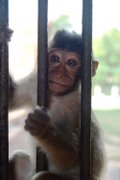
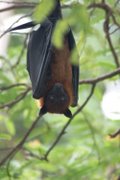
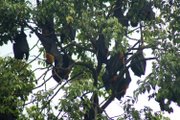

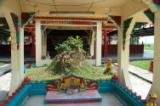
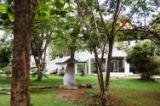
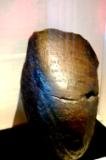
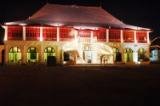
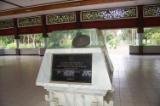
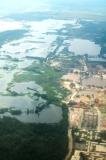

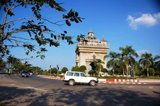
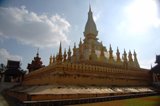
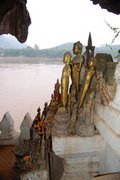

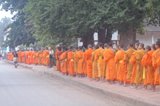


No comments:
Post a Comment